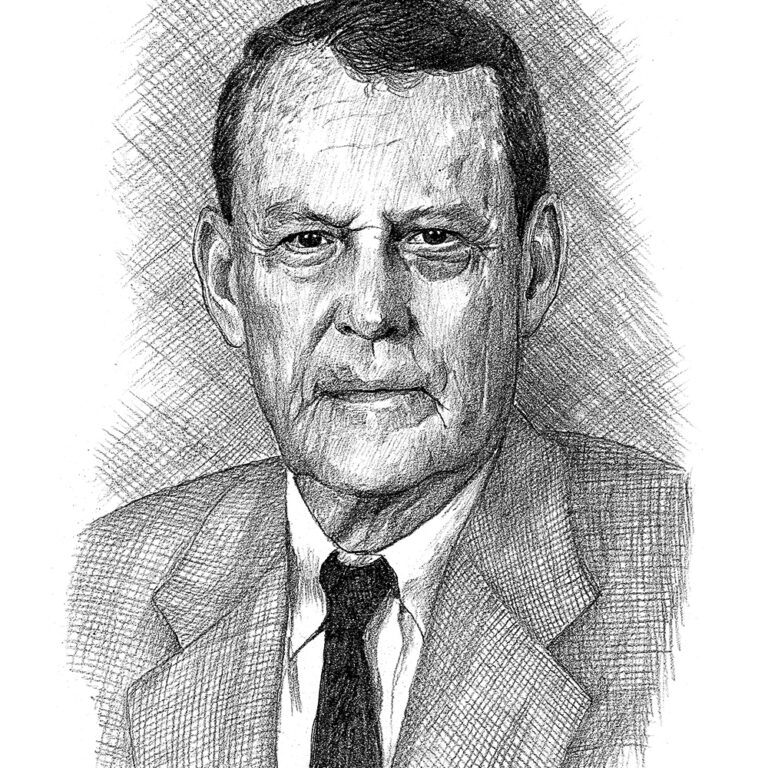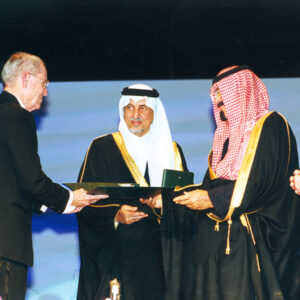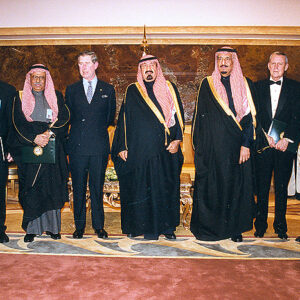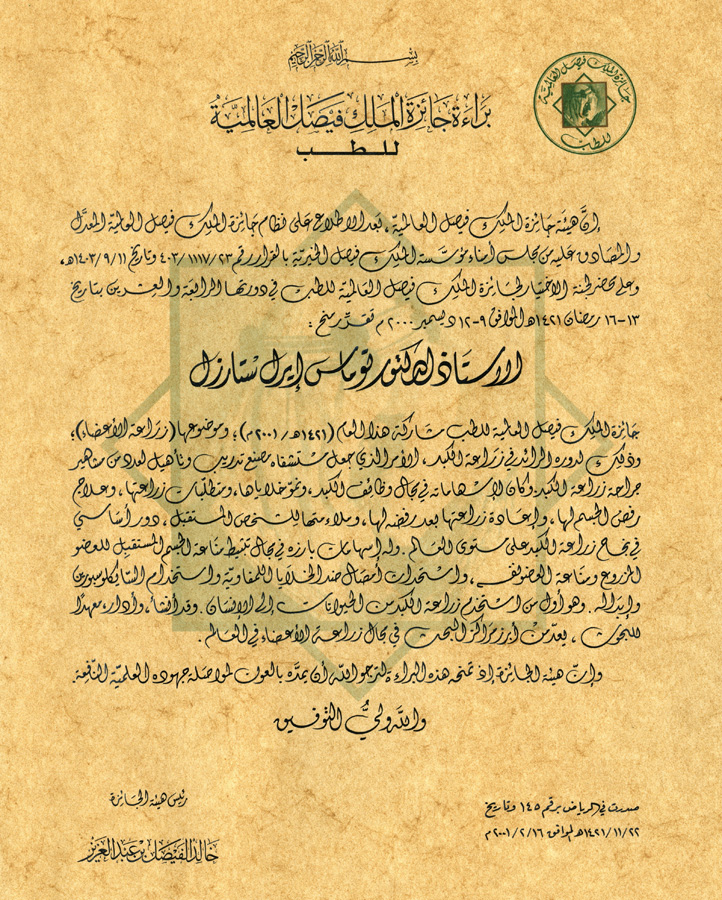

Professor Thomas Starzl
King Faisal Prize in Medicine 2001 Laureate
Topic: "Organ Transplantation "
The greatest fulfillment in life is to see something of yourself, if only once, in the face of another human being who would not have lived without your intervention

Thomas Starzel earned his bachelor’s degree in Biology from Westminster College in Fulton, Missouri in 1947, then obtained his M.A. in anatomy from Northwestern University in 1950 and earned both a Ph.D. in neurophysiology and an M.D. in 1952. He served as a researcher at the University of Colorado, then moved – since 1981 – to the University of Pittsburgh, where he started working on organ transplantation which was still an underdeveloped field.
Professor Starzl’s accomplishments as an organ transplant surgeon have profoundly impacted the medical community. Often referred to as “the father of modern organ transplantation,” Starzel developed many surgical techniques that were initially only known to him. Professor Starzl performed the world’s first liver transplant in 1963 and the first successful liver transplant in 1967, both while at the University of Colorado. He also performed the first simultaneous heart and liver transplant at Pittsburgh. He established the clinical utility of immunosuppressive drugs and determined the causative association between immunosuppression and post-transplant lymphoproliferative disease and other opportunistic infections, and provided the rationale for treatment by reversing the immunosuppressed state. Starzl is also credited for delineating the indications and limitations of abdominal organ transplantation and for advancing the techniques used for organ preservation, procurement and transportation.
Professor Starzel authored and co-authored numerous scientific articles, four books and 292 book chapters. According to the Institute for Scientific Information, he was one of the most prolific scientists in the world, and the most cited scientist in the field of clinical medicine.
Starzl’s accomplishments were recognized by numerous awards and honors including David M. Hume Memorial Award by the National Kidney Foundation in 1978; Brookdale Award by the American Medical Association in 1974; Bigelow Medal by Boston Surgical Society in 1989; City of Medicine Award in 1989; Distinguished Service Award by the American Liver Foundation in 1991; William Beaumont Prize by the American Gastroenterological Association in 1991; Peter Medawar Prize by the Transplantation Society in 1992; Jacobson Innovation Award of the American College of Surgeons in 1995; and Lannelongue International Medal by the Académie Nationale de Chirurgie in 1998. Starzl was also awarded honorary degrees from 21 universities in the United States and abroad and was named one of the most important people of the Millennium. In 1992, he was included as one of only five American members into the National French Academy of Medicine. He retired from clinical and surgical service in 1991 but remains active as a researcher and Professor of Surgery at the Pittsburgh Medical School and Medical Center’s Program, which is also named after him “The Thomas E. Starzl Transplantation Institute.”
This biography was written in the year the prize was awarded.
- He received many awards and honors including:
- John Scott Award by the City Council of PhiladelphiaBoard of Directors of City Trusts of Philadelphia in 2004.
- National Medal of Science, presented by the President of the USA in 2006.
- Gustav O. Lienhard Award by the National Institute of Medicine in 2009.
- Physician of the Year Award for Life Achievement by Castle Connolly Medical in 2009.
- Carnegie Science Chairman’s Award by the Carnegie Science Center in 2010.
- Lasker Award from the Albert and Mary Lasker Foundation in 2012.
- Hepatitis B Foundation Baruch S. Blumberg Prize in 2014.
- American Philosophical Society Benjamin Franklin Medal for Distinguished Achievement in the Sciences in 2016.
- Professor Thomas Starzl passed away in Pittsburgh on 4/3/2017.



